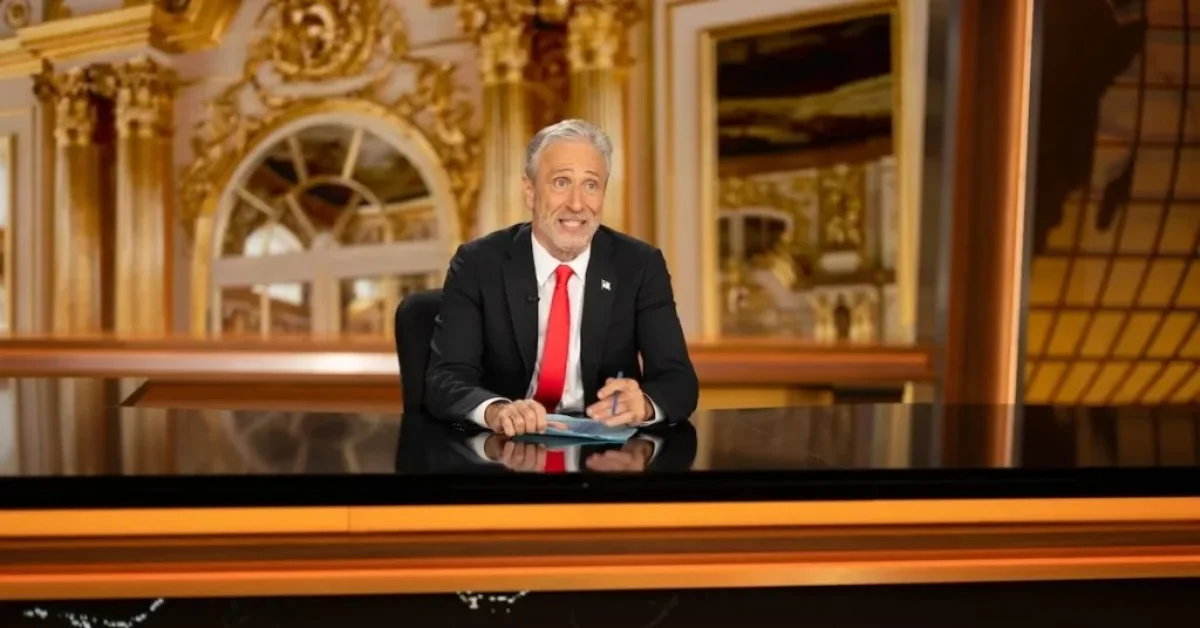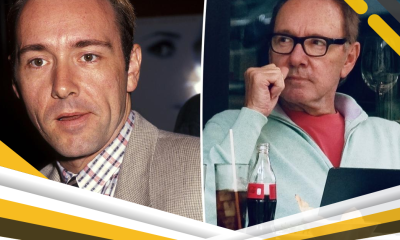The Daily Show: Jon Stewart Takes Savage Shots at Donald Trump Amid Jimmy Kimmel Suspension

The late-night television landscape recently witnessed a convergence of political commentary, satire, and controversy, particularly with Jon Stewart’s pointed return to ‘The Daily Show.’ His presence became especially noteworthy as he took aim at Donald Trump’s rhetoric and actions, all while navigating the contentious backdrop of Jimmy Kimmel’s suspension from ABC.
This confluence of events not only highlighted the role of political satire in contemporary media but also underscored ongoing debates about free speech and media independence.
Jon Stewart Steps into the Fray Amidst Late-Night Turmoil
Jon Stewart, an iconic figure in political satire, made a special, unannounced appearance on ‘The Daily Show’ outside of his usual Monday hosting duties, seizing the moment to address significant events unfolding in the media world.
His return was particularly impactful given the context of Jimmy Kimmel’s recent indefinite suspension from ABC. Kimmel’s suspension reportedly stemmed from controversial comments he made regarding the death of conservative activist Charlie Kirk and his alleged killer, Tyler Robinson, with reports citing pressure from the Federal Communications Commission (FCC) and network affiliates.
Stewart’s decision to host an additional episode, introduced as the “all-new, government-approved ‘Daily Show,'” was a direct, satirical response to the perceived chilling effect on free speech.
A Satirical Take on Power and Propaganda
During this special broadcast, Stewart adopted the persona of a “patriotically obedient host,” transforming ‘The Daily Show’ into a satirical, North Korea-esque propaganda outlet entirely devoted to praising Donald Trump and Republicans.
He set the scene with an overtly gilded, Trump-inspired backdrop and delivered absurdly effusive praise for Trump, often with a panicked demeanor, frequently chastising the audience for laughing at his sarcastic remarks.
Stewart’s “savage shots” at Donald Trump were embedded within this elaborate satirical framework. For instance, while recapping Trump’s state visit to the UK, Stewart described him as “our great father” who was “gracing England with his legendary warmth and radiance,” and possessing “undeniable sexual charisma.”
He went on to praise Trump’s “perfectly tinted” skin and even comically “corrected” the pronunciation of Azerbaijan to match Trump’s apparent mispronunciation.
The core of Stewart’s critique centered on what he presented as Trump’s efforts to influence media narratives and suppress dissenting voices. When Trump publicly commented on Kimmel’s suspension, suggesting it was due to “very bad ratings” and “no talent,” Stewart used this as a springboard to discuss the First Amendment.
He sarcastically introduced a “Talent-O-Meter,” a fictional device on the president’s desk that measures a performer’s “talent quotient,” which, according to Stewart, is “measured mostly by niceness to the president.” He implied that if this quotient falls below a certain level, the FCC is notified to “threaten the acquisition prospects for billion-dollar mergers of network affiliates.”
Stewart also played a supercut of blatant lies told by various Fox News hosts and highlighted instances where figures like Donald Trump Jr. and Kari Lake made comments that could be interpreted as joking about violence against liberals.
This segment served to underscore the irony of conservative calls for Kimmel’s suspension over controversial remarks, juxtaposed with what Stewart presented as equally problematic or worse speech from the right.
The Broader Implications for Free Speech and Late-Night Comedy
The circumstances surrounding Jimmy Kimmel’s suspension and Jon Stewart’s response have ignited a broader discussion about free speech, political pressure on media, and the role of late-night hosts.
Kimmel’s show was “pre-empted indefinitely” by ABC, with major affiliate groups like Nexstar and Sinclair Broadcast Group refusing to air the show and even requesting conditions for its return. This move was celebrated by former President Trump, who praised ABC for having the “courage” to act, while many Hollywood stars and free speech advocates condemned it as censorship.
Stewart’s satirical “government-approved” ‘Daily Show’ directly satirized this dynamic, suggesting a future where media acquiesces to administration demands. By feigning compliance, he subtly criticized what he saw as an erosion of media independence and the weaponization of concepts like “free speech” to silence critics.
He highlighted the “rules of free speech” as dictated by the administration, where saying “fascist” or “enemy” is prohibited, and niceness to the president becomes the metric.
The episode also featured an interview with Nobel Peace Prize winner Maria Ressa, a journalist renowned for her fight for freedom of expression. Their discussion explored the dangers of disinformation and how platforms are designed to spread lies, further cementing Stewart’s critique of the current media environment and the pressures on journalists and satirists.
Conclusion
Jon Stewart’s timely and incisive return to ‘The Daily Show’ amidst the controversy surrounding Jimmy Kimmel’s suspension served as a potent commentary on the state of political discourse and media freedom.
By adopting an exaggerated, “government-approved” persona, Stewart masterfully highlighted the potential dangers of unchecked political influence on news and satire. His sharp observations, cloaked in humor, provided a critical lens through which to examine the broader implications for free speech and the ongoing struggle for an independent press in an increasingly polarized landscape.
The episode underscored that even in moments of uncertainty, satire remains a vital tool for scrutinizing power and sparking necessary conversations about fundamental democratic principles.
FAQ
Jimmy Kimmel’s show, ‘Jimmy Kimmel Live!,’ was indefinitely suspended by ABC following controversial remarks he made about the death of conservative activist Charlie Kirk and his alleged killer, Tyler Robinson. This decision reportedly came after pressure from the FCC and various network affiliates.
Jon Stewart hosted a special, unscheduled episode of ‘The Daily Show,’ reimagining it as a “government-approved” propaganda program. Through heavy satire, he praised Donald Trump and the administration, while subtly criticizing the pressures on free speech and media independence in the wake of Kimmel’s suspension.
Stewart’s critique focused on what he presented as Trump’s attempts to control media narratives, define acceptable speech, and undermine the First Amendment. He used an elaborate satirical setup, portraying ‘The Daily Show’ as a state-controlled media outlet, to highlight these concerns.












